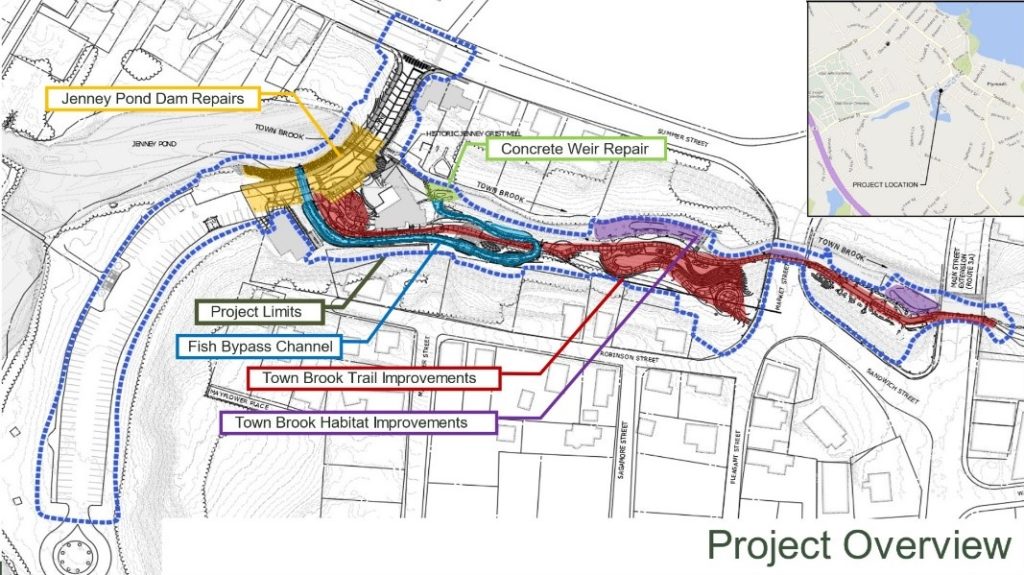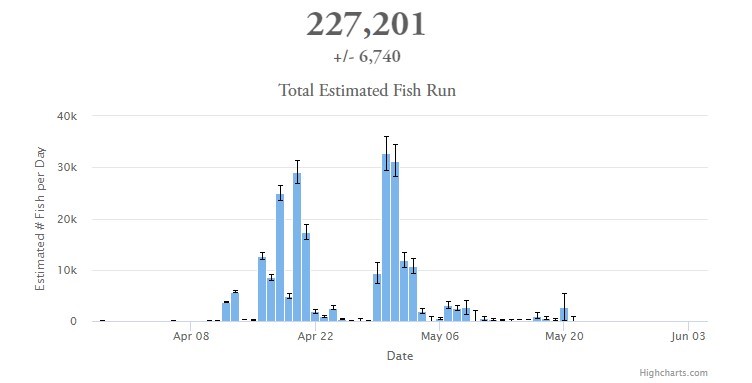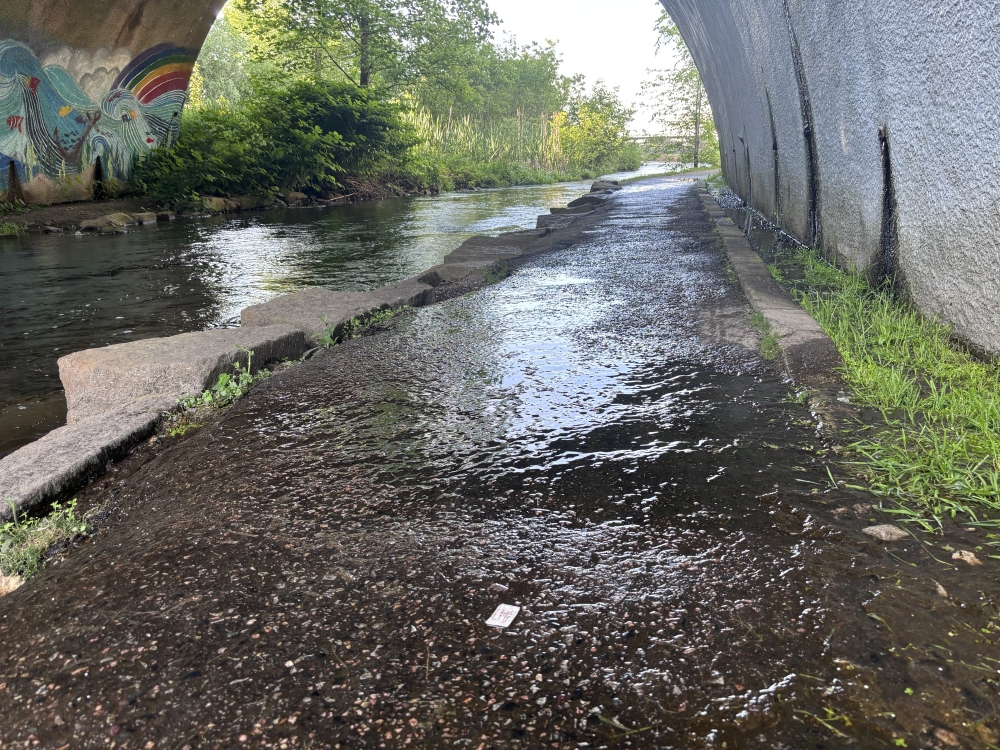The town is receiving $10 million in federal funding to help construct a “nature-like fishway” on Town Brook that will bypass Jenney Grist Mill, making it possible for people to walk along the waterway and observe migrating fish without getting their feet wet.
The existing path, from Jenney Pond through Brewster Gardens, is eroded in places and the grass areas around it are often muddy. Some sections of walkway become submerged during storms or especially high tides. In addition, the dam at Jenney Pond poses a hazard for fish migrating downstream. The project is intended to remedy those issues.
The grant, formally accepted by the Select Board Tuesday evening, was secured through a proposal submitted by the town’s Department of Energy and Environment to the National Oceanic and Atmospheric Administration (NOAA) last fall. The money was made available in a NOAA funding initiative entitled “Restoring Fish Passage through Barrier Removal,” which is backed by appropriations in the 2021 federal infrastructure law and the Inflation Reduction Act of 2022.

This grant will help finalize efforts by the town and its partner agencies at state and federal levels to remove the last significant constraint to upstream migration of river herring, American eel, sea-run brook trout, rainbow smelt, and potentially even American shad along Town Brook. Alewives and Bluebacks, the two river herring species, can now run as much as 1.6 miles up the brook to Billington Sea to take advantage of 270 acres of prime spawning habitat, but the fishway will make it even easier. Importantly, hazards to downstream migration of adult and juvenile fish will be reduced significantly, as they will not need to survive the jump over the spillway at the Jenney Pond Dam.
Beginning in 2002 with the removal of the Billington Street Dam, the five dams removed on Town Brook to date have led to annual migrations of an estimated nearly 250,000 river herring each year.

The project also will involve improvements to the walking trail along the brook, restoration of the adjacent habitat, repairs to the Jenney Pond Dam, and the dredging of 6,350 cubic yards of sediment from Jenney Pond. The project will complement the recent $3 million in Community Preservation Act funds approved recently by Town Meeting to replace the pedestrian bridge over Jenney Pond and to improve the trails at Jenney Pond Park. The bridge replacement and trail improvements have been planned for this coming winter, and the nature-like fishway and dam repairs will be carried out the following winter.
There are more than 500,000 dams across the United States, but 85 percent of these are thought to be beyond their useful lifespans. According to American Rivers, a nonprofit advocating for river restoration, leaving nonfunctioning dams in place increases the temperature of impounded waters, lowers dissolved oxygen levels, and increases the likelihood of blooms of toxic blue-green algae. Removing these dams helps to restore riverine habitat, allows fish migration to historic breeding and feeding areas, and lowers the production of methane, a potent greenhouse gas.
Plymouth has received national recognition for its efforts in dam removal. Only about 40 of an estimated 3,000 dams in Massachusetts have been removed so far, but Plymouth alone has removed 13, and has also built seven new bridges and culverts. David Gould, director of the Department of Energy and Environment, presented a report on the town’s dam removal and habitat restoration efforts during a May 1 briefing before Congress on the state of dam infrastructure in the United States.
The town also is a partner in efforts headed by the Buzzards Bay Coalition to improve fish passage and restore habitat on the Agawam River, which begins at Halfway Pond in Plymouth. That project, which received $3.7 million in funding through the same NOAA grant mechanism, is designed to enhance fish migration through formerly active cranberry bogs along the Agawam from Wareham up into Plymouth’s six ponds region. Another dam is planned for removal through that project as well.
Plymouth resident Porter Hoagland is interested in local environmental and natural resource matters. He welcomes your feedback and can be reached at phoagland@whoi.edu.

